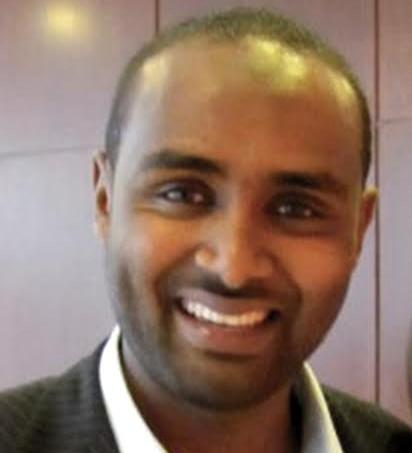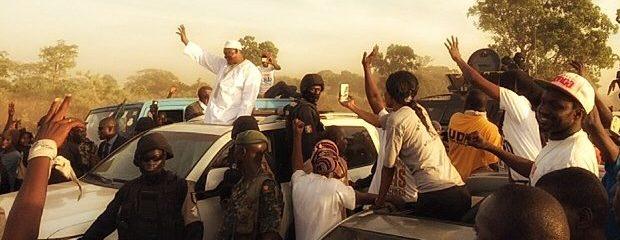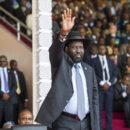Kenya: Raila and Uhuru should stop holding the country to ransom over National Dialogue – By Abdullahi Boru Hallakhe

 In both symbolic and material terms, “˜Saba Saba’ occupies a significant place and meaning in contemporary Kenya. The date draws its significance from the fact that in 1990 it inaugurated a new chapter in the pro-reform movement. On July 7th 1990 a group of like-minded individuals calling for state reform converged in a Nairobi stadium before the police violently broke up their meeting.
In both symbolic and material terms, “˜Saba Saba’ occupies a significant place and meaning in contemporary Kenya. The date draws its significance from the fact that in 1990 it inaugurated a new chapter in the pro-reform movement. On July 7th 1990 a group of like-minded individuals calling for state reform converged in a Nairobi stadium before the police violently broke up their meeting.
However, despite the power imbalance between the state and the pro-reform group, their resilience paid off. In December 1991 the government begrudgingly accepted the amendment of Section 2(A) of the independent constitution, making Kenya a de jure multi-party state.
For many people, “˜Saba Saba’ is more than just an event or a slogan; it is a time capsule in which the hopes and fears for a better Kenya are captured.
But over the years, especially following the opening of the country’s democratic space and emergence of a new generation of Kenyans unaffected by the Moi dictatorship, the date’s significance in the popular imagination has been slowly eroded.
As a result of Kenya’s prevailing atmosphere of deep political and ethnic polarization, this year’s rally – organized by the opposition leader Raila Odinga to revive the spirit of anti-state protest – has divided rather than united people. Many Kenyans, however, agree that the present administration has, in its first 15 months, tested their patience through innumerable failures.
National Dialogue
After the Supreme Court confirmed Uhuru Kenyatta’s victory in the 2013 elections the political opposition looked rudderless. A combination of Kenyatta’s super-majority in both houses and the lack of any statutory political position (a consequence of the 2010 constitution) for the losing presidential candidates, left Odinga with little leverage with which to engage the state.
This combined with the Jubilee administration’s needless attempts to humiliate him: denying access to the VIP lounge at the airport, withdrawal of his security details and threat of cancellation of his pension unless he retires from politics. This left many wondering whether the end was nigh for the once indomitable opposition leader. Without his leadership the opposition coalition also looked rudderless.
However, Odinga got a lifeline when he was invited to Boston University in Massachusetts for a three month stint earlier this year as a “˜Resident Instructor’. During that period, the Kenyatta administration lurched from one self-inflicted blunder to another; the payment of millions of Anglo Leasing contracts, the spiraling insecurity and deepening visceral and polarizing ethnic politics. The government’s response to some of these challenges was laughable at best and criminal at worst.
On his return, Odinga looked ready to capitalize on the government’s failures. As a way of addressing these issues, Odinga called for a National Dialogue. The president initially agreed, only to change his mind, arguing that he would not meet with the opposition under duress. The government argued that if the opposition was truly keen to address these issues, then parliament is the correct avenue. This was, however, a cynical ploy from a president safely protected by his absolute majority.
After the government stonewalled, the Odinga-led opposition took their message to the people through a series of public events, which culminated in Monday’s Saba Saba rally in Nairobi.
Even to ardent Jubilee supporters, there are reasons for Kenyan politicians to engage in a National Dialogue. These include run away insecurity, rampant corruption, pervasive and poisonous ethnic relations, combined with unanswered questions on the way forward on Truth, Justice and Reconciliation. This raises fundamental issues around historical and contemporary injustices – including the continued treatment of some Kenyans as second class citizens.
Regardless of whether the president considers accepting a national dialogue proposed by the opposition as an implicit acceptance of his administration’s failures, this was a win-win situation for both sides. But the status quo if left unchecked could easily unravel the prevailing, but fragile, peace.
Considering Kenya’s recent history, the president should demonstrate statesmanship, avoid a further fraying of ethnic relations and call for a national dialogue that will encompass religious leadership, civil society, women and youth. Recalcitrance from the current administration and a further push by the opposition will not augur well for stability, only serving to deepen existing divisions.
What next for Odinga?
The government attempted to cancel the rally (justified by “˜security fears’), although this did not eventually materialize. At the rally the opposition launched “˜OKOA KENYA’ (Save Kenya); a “˜people’s movement’ that the opposition says will defend the Constitution, protect the gains made in democratic governance and rededicate the opposition to national unity and peaceful co-existence.
They also say they are calling for the convening of an all-inclusive National Referendum Committee (NRC) for the purpose of preparing the people of Kenya for a national referendum on the critical challenges facing the nation. The NRC will be mandated with ensuring the maximum participation of the people of Kenya in the referendum at the County, Sub-County and Ward levels all over Kenya; in formulating the referendum question(s), collecting and collating one million signatures to initiate the referendum.
While in theory these calls look admirable, the prevailing polarization, coupled with the government’s intransigence, could turn this into an ugly confrontation. The present tug-of-war between the administration and the opposition looks like a clash between an immovable object and an unstoppable force, which if not well calibrated could cause problems.
The president and the opposition should meet each other halfway – the opposition should drop some of their demands, and the president should accept the call for National Dialogue.
On a personal level, the Kenyatta-Odinga family contest has a rich history; the two belong to Kenya’s political “˜royal’ family. Kenyatta’s father was Kenya’s independence president, and Odinga’s was Kenyatta’s deputy, albeit briefly, before falling out over what Odinga considered the betrayal of the independence dream.
The last elections evoked some of this deep-seated residual historical animus between the two families, and their historical rivalry still animates Kenyan politics. However, Kenya is bigger than both Odinga and the Kenyatta family, and the two should not hold the country to ransom.
Abdullahi Boru Halakhe is a Horn of Africa Analyst.







Very true Boru. The statement “the prevailing polarization, coupled with the government’s intransigence, could turn this into an ugly confrontation” sums it up